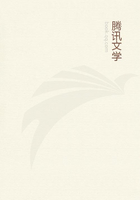
第22章
As he lifted it,a glittering coin fell out.
"W'y,wot's this?"he cried,looking curiously at the wad of discoloured paper.One side had been chewed to a pulp by something small and sharp.
"Rats an'mice!"cried Jonah.
"They've boned the paper ter make their nests.Every dollar's 'ere,if we only look.""Thank Gawd!"said Mrs Yabsley,heaving a tremendous sigh."Ada,go an'git a jug o'beer."
In an hour Jonah had recovered twenty-eight of the missing coins;the remaining two had evidently been dragged down to their nests by the industrious vermin.Late in the afternoon Jonah,who looked like a sweep,gave up the search.The kitchen was a wreck.Mrs Yabsley sat with the coins in her lap,feasting her eyes on this heap of glittering gold,for she had rubbed each coin till it shone like new.Her peace of mind was restored,but it was a long time before she could think of rats and mice without anger.
PADDY'S MARKET
Chook was standing near the entrance to the market where his mates had promised to meet him,but he found that he had still half an hour to spare,as he had come down early to mark a pak-ah-pu ticket at the Chinaman's in Hay Street.So he lit a cigarette and sauntered idly through the markets to kill time.
The three long,dingy arcades were flooded with the glare from clusters of naked gas-jets,and the people,wedged in a dense mass,moved slowly like water in motion between the banks of stalls.From the stone flags underneath rose a sustained,continuous noise--the leisurely tread and shuffle of a multitude blending with the deep hum of many voices,and over it all,like the upper notes in a symphony,the shrill,discordant cries of the dealers.
Overhead,the light spent its brightness in a gloomy vault,like the roof of a vast cathedral fallen into decay,its ancient timbers blackened with the smoke and grime of half a century.On Saturdays the great market,silent and deserted for six nights in the week,was a debauch of sound and colour and smell.Strange,pungent odours assailed the nostrils;the ear was surprised with the sharp,broken cries of dealers,the cackle of poultry,and the murmur of innumerable voices;the stalls,splashed with colour,astonished the eye like a picture,immensely powerful,immensely crude.
The long rows of stalls were packed with the drift and refuse of a great City.For here the smug respectability of the shops were cast aside,and you were deep in the romance of traffic in merchandise fallen from its high estate--a huge welter and jumble of things arrested in their ignoble descent from the shops to the gutter.
At times a stall was loaded with the spoils of a sunken ship or the loot from a city fire,and you could buy for a song the rare fabrics and costly dainties of the rich,a stain on the cloth,a discoloured label on the tin,alone giving a hint of their adventures.Then the people hovered round like wreckers on a hostile shore,carrying off spoil and treasure at a fraction of its value,exulting over their booty like soldiers after pillage.
There was no caprice of the belly that could not be gratified,no want of the naked body that could not be supplied in this huge bazaar of the poor,but its cost had to be counted in pence,for those who bought in the cheapest market came here.
A crowd of women and children clustered like flies round the lolly stall brought Chook to a standstill;the trays heaped with sweets coloured like the rainbow,pleased his eye,and,remembering Ada's childish taste for lollies,he thought suddenly of her friend,Pinkey the red-haired,and smiled.
Near at hand stood a collection of ferns and pot-plants,fresh and cool,smelling of green gardens and moist earth.Over the way,men lingered with serious faces,trying the edge of a chisel with their thumb,examining saws,planes,knives,and shears with a workman's interest in the tools that earn his bread.
Chook stopped to admire the art gallery,gay with coloured pictures from the Christmas numbers of English magazines.On the walls were framed pictures of Christ crucified,the red blood dropping from His wounds,or the old rustic bridge of an English village,crude as almanacs,printed to satisfy the artistic longings of the people.
Opposite,a cock crowed in defiance;the hens cackled loudly in the coops;the ducks lay on planks,their legs fastened with string,their eyes dazed with terror or fatigue.
A cargo of scented soap and perfume,the damaged rout of a chemist's shop,fascinated the younger women,stirring their instinctive delight in luxury;and for a few pence they gratified the longing of their hearts.
The children pricked their ears at the sudden blare of a tin trumpet,the squeaking of a mechanical doll.And they stared in amazement at the painted toys,surprised that the world contained such beautiful things.
The mothers,harassed with petty cares,anxiously considered the prices;then the pennies were counted,and the child clasped in its small hands a Noah's ark,a wax doll,or a wooden sword.
Chook stared at the vegetable stalls with murder in his eyes,for here stood slant-eyed Mongolians behind heaps of potatoes,onions,cabbages,beans,and cauliflowers,crying the prices in broken English,or chattering with their neighbours in barbaric,guttural sounds.To Chook they were the scum of the earth,less than human,taking the bread out of his mouth,selling cheaply because they lived like vermin in their gardens.